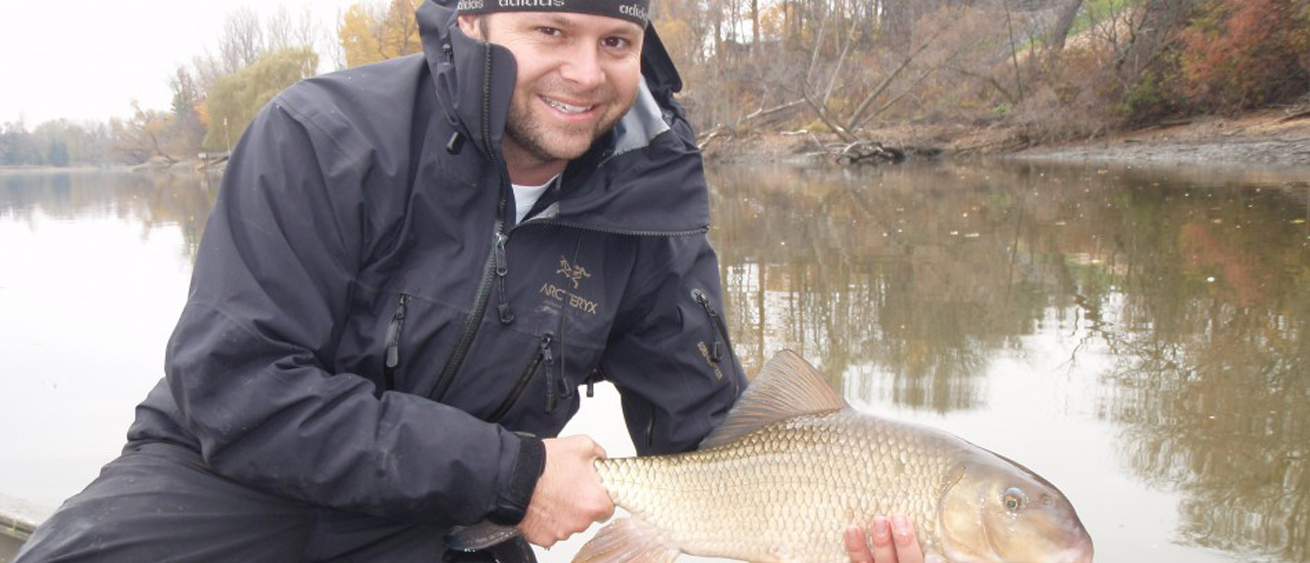Angler Participation in 2020 and Dr Steven Cooke
Dr. Steven Cooke and his Fish Ecology and Conservation Physiology Laboratory at Carleton University recently completed a survey called, “Covid-19 restrictions and recreational fisheries in Ontario”. Understanding how people engaged in outdoor activities such as angling during a pandemic is crucial to learning more about the “one-health” relationship people have with nature.
Link below to hear Dr. Steven Cooke in conversation with Lawrence Gunther about the take-aways from the survey on this episode of The Blue Fish Radio Show:
The Cooke Lab Survey explored: changes in recreational fishing effort, years of experience with angling, fishing-related travel and spending, retention and consumption of caught fish, quality of fishing during the pandemic, and the roles and responses of both government and recreational anglers in recreational fisheries during the pandemic. : preliminary insights from the online angler survey include: 789 Ontario respondents completed at least 90% of the survey, 90% were males having the mean age of 51, 95% reported as average to good anglers, and 64% were not part of a fishing club.
Link to access the recently published results of the survey: https://ecoevorxiv.org/87qh9/
Authors of the study included: Andrew Howarth, Amanda L. Jeanson, Alice E. I. Abrams, Christine Beaudoin, Isha Mistry, Albana Berberi, Nathan Young, Vivian M. Nguyen, Sean J. Landsman, Andrew KadykaloAndy J. Danylchuk, Steven Cooke.
Dr. Steven Cooke teaches Fish ecology and conservation at Carleton university. Dr. Cooke has diverse interests in integrative biology, conservation science, and natural resource management. His work spans the natural and social sciences with a particular focus on developing solutions to problems facing fish and other aquatic organisms. Specific projects of late have focused on issues and topics such as fish migration, fish-hydropower interactions, the sustainability of recreational fisheries, aquatic habitat restoration, the movement ecology of fish, the ecology of stress in wild fish, and winter biology.
Link for more about the work of Dr. Steven Cooke and the Cooke Lab:
https://carleton.ca/biology/people/steven-j-cooke/
According to a similar U.S. study called “Who’s on Board” conducted by the Recreational Boating and Fishing Foundation in 2020, social distancing resulted in many of our routine leisure activities inaccessible, but it also led many of us to discover new ways of enjoying our free time and practicing self-care. It’s the RBFF’s belief that with all the uncertainty that 2020 has brought, fishing & boating provided a host of benefits including peace and relaxation, quality time with family and loved ones, and the calming effect of nature.
Millions of Americans took up fishing or boating as new or returning participants during summer 2020.
New anglers and boaters are younger, more urban and more diverse. They are also highly socially connected.
Common reasons for getting started included canceled vacations and summer plans, more flexible schedules while working from home and inspiration from family and friends.
New anglers overcame a variety of barriers including inexperience, lack of equipment and not having a fishing companion.
Benefits people liked most about fishing & boating included the calmness of nature, enjoyment and mental wellness.
Newcomers overwhelmingly plan to continue fishing & boating. Among boaters, 94% say they’ll continue, and among anglers, 90% plan to continue in the future.
Personal motivations for continued participation include three key elements of fishing & boating: social connection with loved ones, the challenge of the activities and the connection to nature they offer.
The “Who’s On Board” study is part of the Take Me Fishing Get On Board campaign, a national public service initiative to raise awareness about the health and wellness benefits of fishing & boating while social distancing. The full report and multimedia assets are available for download at www.TakeMeFishing.org/WhosOnBoard.
The Recreational Boating & Fishing Foundation is a non-profit organization whose mission is to increase recreational angling and boating participation, thereby protecting and restoring the nation’s aquatic natural resources. RBFF’s 60 in 60 effort strives to attract 60 million anglers to the sport by the end of 2021. To help recruit, retain and reactivate participants, RBFF developed the award-winning About the Recreational Boating & Fishing Foundation (RBFF).
RBFF is a non-profit organization whose mission is to increase recreational angling and boating participation, thereby protecting and restoring the nation’s aquatic natural resources. RBFF’s 60 in 60 effort strives to attract 60 million anglers to the sport by the end of 2021. The initiative focusses on recruitment, retaining and reactivating anglers.



